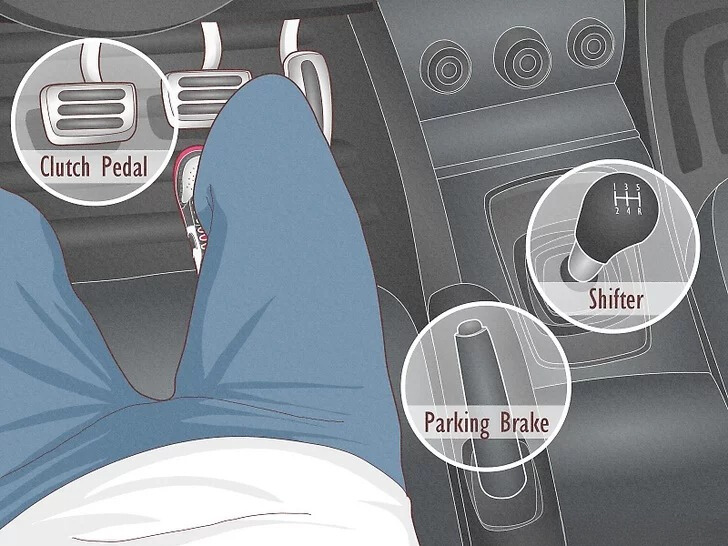Becoming a new driver is an exciting milestone, but it can also be a bit overwhelming. While the freedom of being behind the wheel is exhilarating, it’s important to stay focused, confident, and safe. As a beginner, developing good habits and learning the fundamentals can make your driving experience much smoother. Here are some essential tips to help you become a more confident and capable driver.
1. Get to Know Your Vehicle
Before you even hit the road, familiarize yourself with your car. Understand how to operate the basic controls like headlights, windshield wipers, hazard lights, and air conditioning. Know the location of essential components, such as the horn, gas tank release, and emergency brake. Adjust your mirrors, steering wheel, and seat position for optimal comfort and visibility.
2. Always Wear Your Seatbelt
It might seem obvious, but wearing your seatbelt is the simplest and most effective way to protect yourself in the event of an accident. Make it a habit to buckle up before you even start the car. Ensure that passengers also wear their seatbelts to keep everyone safe.

3. Stay Calm and Focused
One of the most important skills for a new driver is staying calm. Anxiety or overexcitement can lead to poor decision-making on the road. Take deep breaths and focus on the task at hand. Avoid distractions like using your phone, adjusting the radio, or chatting too much with passengers while driving.
4. Obey Speed Limits
Speed limits are there for a reason. As a beginner, it’s crucial to follow them. Driving too fast or too slow can be dangerous. Pay attention to posted speed signs, especially in residential areas, school zones, and highways. Keep your speed steady and always drive within your comfort zone.
5. Maintain a Safe Following Distance
One of the common mistakes new drivers make is tailgating. Always maintain a safe following distance between you and the car in front of you. A general rule of thumb is the “three-second rule,” which gives you enough time to react to sudden stops or obstacles. In adverse weather conditions, increase the following distance.
6. Practice Defensive Driving
Defensive driving means being prepared for the unexpected. Always be aware of your surroundings, anticipate other drivers’ actions, and be ready to react quickly if necessary. Avoid aggressive drivers and stay out of other drivers’ blind spots. Defensive driving keeps you safe and reduces the chances of accidents.
7. Limit Night and Bad Weather Driving
As a new driver, it’s a good idea to limit your driving in challenging conditions like at night or during bad weather until you gain more experience. Driving in the dark or during heavy rain or fog can be stressful, as visibility is reduced and road conditions become slippery. Gradually work your way up to driving in these conditions as your confidence grows.

8. Practice Parking
Parking can be intimidating for beginners, especially parallel parking. Take the time to practice parking in various situations, such as in parking lots, parallel spots, and tight spaces. The more you practice, the more comfortable you’ll become with maneuvering your vehicle.
9. Use Turn Signals
Your turn signals are your way of communicating with other drivers. Always signal before turning, changing lanes, or pulling over to let others know your intentions. It helps reduce confusion and makes the road safer for everyone.
10. Stay Alert for Pedestrians and Cyclists
Pedestrians and cyclists can sometimes be hard to see, especially in busy urban areas. Be mindful when approaching crosswalks or bike lanes. Always yield to pedestrians and give cyclists plenty of room when passing them on the road.
11. Stay Relaxed and Build Confidence Over Time
Driving takes time to master. Don’t rush yourself or feel pressured by more experienced drivers. The key is to stay relaxed and learn at your own pace. With time, your confidence will grow, and you’ll find driving becomes second nature.
12. Take Care of Your Vehicle
Regular car maintenance is crucial to keep your vehicle in good shape. Check the oil, tire pressure, and other essential fluids regularly. Keeping your car well-maintained can prevent breakdowns and ensure it runs smoothly.
Conclusion
As a new driver, gaining confidence and driving safely requires practice, patience, and awareness. By following these tips and developing good habits from the start, you’ll set yourself up for a lifetime of safe and enjoyable driving experiences. Remember, driving is a responsibility, and the more prepared you are, the better driver you will become.



